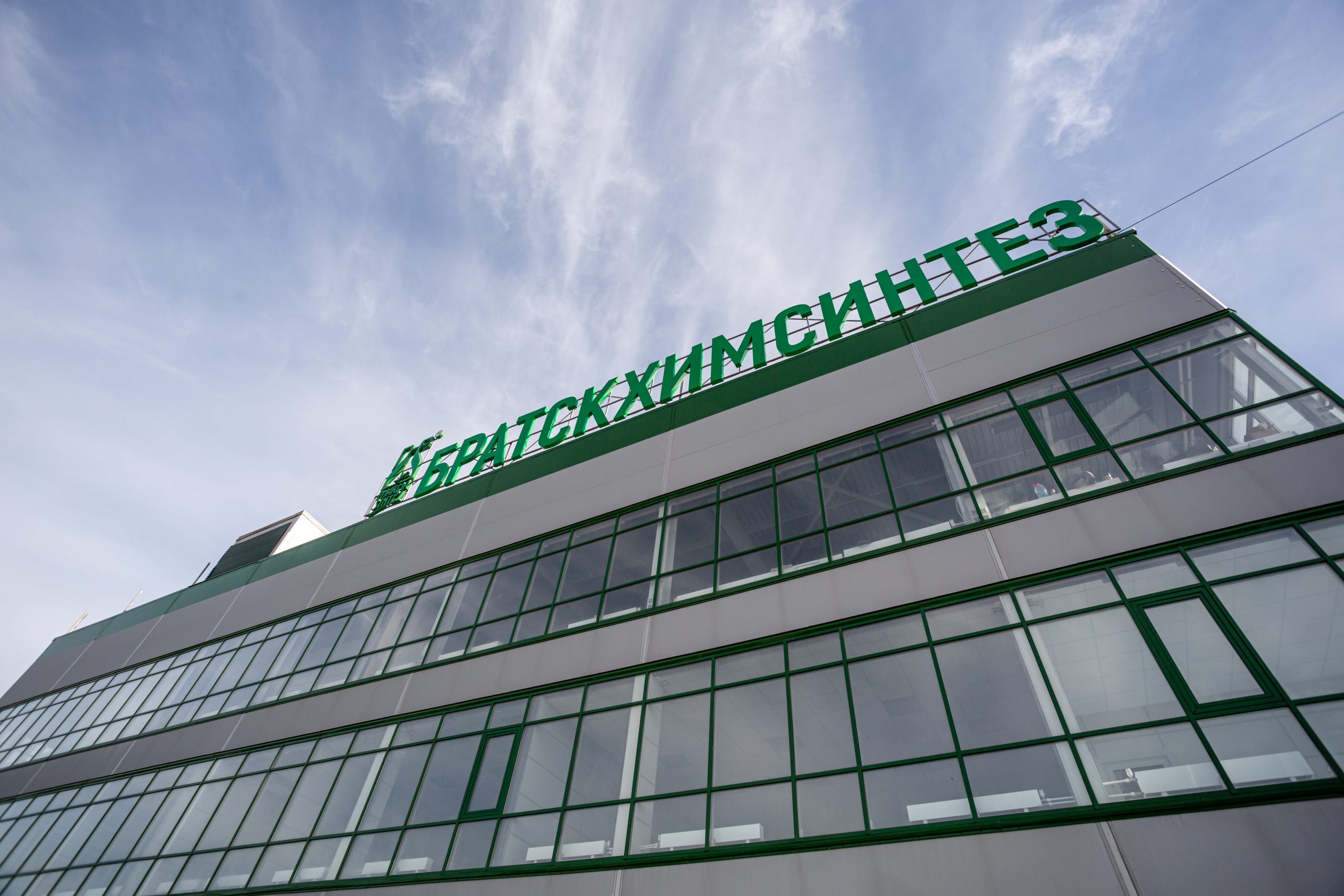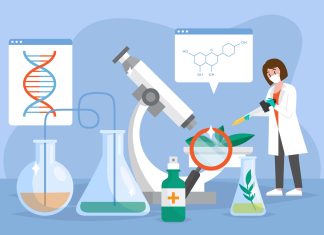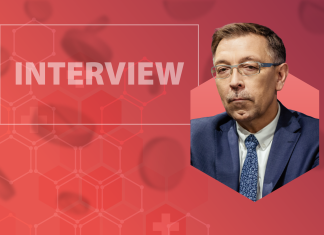On the evening of 26 November 2020, Russian TV channels were broadcasting quite an unusual Zoom meeting. Russian President Vladimir Putin spoke to a few men who were located in the Siberian city of Bratsk, 5,000 km away from the Kremlin. It was on that day that Pharmasyntez, Russia’s pharmaceutical giant, was launching a new plant to manufacture active pharmaceutical ingredients. The men the president was talking to had just finished the opening ceremony at the new plant, called BratskChemSyntez, and were sharing their opinion about how it would help reach the goal of producing essential medications within Russia. Substitution of imported medicines with high-quality Russian medications is one of the priorities of Russian authorities over the latest years.
It could be seen from every screen that Vladimir Putin was highly pleased with what he was shown in Siberia.
Tested by crisis
Opening a plant to manufacture pharmaceutical ingredients in Siberia has become a milepost for the Russian pharmaceutical industry in 2020. The industry suffered a blow with the outbreak of the COVID-19 pandemic, when the system providing it with imported intermediates went paralysed.
Before the pandemic, local pharmaceutical companies provided themselves with as low as 15% of the required raw materials, bringing the rest from China and India. The collapse of the global supply chain induced drug manufacturers to look for alternative suppliers.
A number of Russian companies, however, to0k less of a hit than the industry as a whole. From 2014 on, when Russia faced the first international sanctions, these companies started preparing to shift production of active pharmaceutical ingredients to their Russian enterprises. A focus on their own production sites looked much more of a sustainable solution in the event Russia’s opponents would have decided to cut their supplies of pharmaceutical products.
Pharmasyntez, which owns several pharmaceutical enterprises, needed some assurance of a stable business. Therefore, they chose Bratsk for siting their pharmaceutical plant — a city in Irkutsk Region and one of Siberian industrial oases.
This new project was meant to achieve two objectives: to reduce the company’s dependence on the import of pharmaceutical ingredients as well as decreasing the cost price of finished products so as to make essential medicines more affordable to Russian consumers.
| Siting new production facilities there will help increase the output fivefold at this enterprise alone. In general, the output of the range of pharmaceutical ingredients that the company will produce will double at the industry level. This includes those 32 ingredients that are already manufactured as components of medications for major diseases such as TB, HIV, hepatitis and diabetes, as well as those 15 that the company will start producing in April 2021 for cancer drugs. The same production site will also start synthesising ingredients for COVID-19 medications. Due to its new capacities, before the end of December the company will release more than 100,000 packages of the so much needed Favipiravir, while next year it will be already capable of producing as much as around 600,000 packages of this drug.
Denis Manturov, Minister of Industry and Trade of the Russian Federation, about the BratskChemSyntez plant |
Centre of excellence
Pharmasyntez produced its own first batch of pharmaceutical ingredients back in 2014. All the volumes were directed at its enterprises, which manufacture medications for treating cancer and infectious diseases.
The Siberian project had the backing of Russian authorities, with the construction of BratskChemSyntez partially funded by the state Industrial Development Fund.
Finding a sufficient force of qualified staff for the innovative plant was a bigger challenge than getting funding.
With the opening of the Pharmasyntez plant a small Siberian city may have grown into one of the most attractive places in Russia to which chemists pursuing a brilliant career now gravitated. Pharmasyntez provided the talents who moved to this remote Siberian city from other Russian regions with new accommodation, a generous benefits package and opportunities for rapid growth.
That is how a team for launching the new site was formed. However, after the manufacture of pharmaceutical ingredients was given top priority in Russia in 2020, the pool of qualified staff available in Russia for the company’s future projects was no longer enough. A lack of experienced professionals with skills in the synthesis of active pharmaceutical ingredients is a major challenge for the Russian pharmaceutical industry. Since drug ingredients were largely imported, this area of specialisation has never been Russia’s strong point. Russian education system has been so far focused on training experts in the production of finished medications.
Pharmasyntez decided to nurture talents for the Russian pharmaceutical industry in partnership with top universities. One of such projects is carried out together with Russia’s leading chemistry university named after Dmitri Mendeleev, the father of the periodic table of chemical elements. Pharmasyntez is to create an innovative research and technology centre for new generation chemistry and chemistry of high-purity substances, which will serve as a comprehensive platform for developing modern high-tech chemistry and addressing the needs of import substitution and export promotion of chemical technologies.
Global ambition
Due to the operation of its own production site for the manufacture of pharmaceutical ingredients, Pharmasyntez was better prepared for a dramatic demand for antiviral drugs in 2020 than its competitors. This pharmaceutical giant is now producing several medications recommended by the Russian Ministry of Health for COVID-19 treatment.
With the manufacture of ingredients at BratskChemSyntez up and running, the company was able to make great plans to not only fight the COVID-19 pandemic. Independence from foreign suppliers of key raw materials gave it free rein in increasing its export potential. Showing great ambition in this respect, the company filed an application to get its fifty medications registered in the foreign markets, including Mexico, Brazil, Ecuador and Vietnam, in 2020. It received thirty registration certificates, including in Mongolia, the first non-CIS country. Expanding the export of non-primary products is another priority of Russian authorities. Along with reducing dependency of the national pharmaceutical industry on imported supplies, progress on this goal is under Vladimir Putin’s personal control.
In the next half a year, Pharmasyntez is planning to start the operation of a building housing large-scale production of anti-tumour ingredients with a total area of 3,000 sq m. This building will be composed of two departments: a large-scale production shop (cleanliness classes CNC, D and C) and a small-batch production shop (classes D and C). Construction of another building for the manufacture of pharmaceutical ingredients of the general category is now going through the conceptual design phase. Once these projects are completed, the production capacity of BratskChemSyntez will reach 1,000 tons per year.
As Mikhail Lomonosov, pioneer of Russian science, said around 300 years ago: ‘Russia’s power will grow with Siberia’. This quote made its way into all Russian textbooks. For many years, however, Siberia’s contribution has been seen only as its rich natural resources since this cold region is the major source of organic resources driving Russian economy. Today Pharmasyntez is changing this pattern to turn Siberia into a sustainable source of health for Russian residents.





